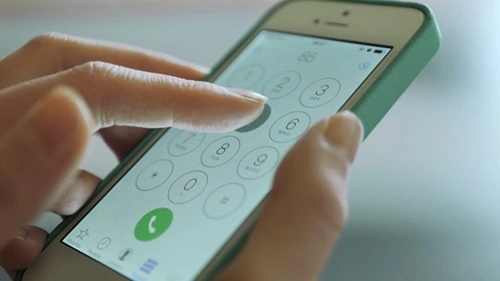No, it is not inherently illegal to give a patient your phone number in the United States. However, the act must comply with professional boundaries, ethical standards, and relevant laws such as the Health Insurance Portability and Accountability Act (HIPAA) if the phone number is used for healthcare-related communication.
When Is It Permissible to Share a Phone Number?
- For Professional Communication
- Healthcare providers often share their office or professional contact information to facilitate communication with patients about their care.
- Many healthcare facilities encourage the use of official channels, such as office numbers or secure messaging systems, to protect both patient privacy and the provider’s professional boundaries.
- In Emergencies
- In certain cases, especially in smaller practices or during emergencies, a provider might share their personal phone number to ensure continuity of care.
- While this practice is not illegal, it must be approached cautiously to maintain professional relationships.
- With Proper Boundaries
- Any communication through a shared phone number must adhere to ethical guidelines, ensuring no exploitation, inappropriate behavior, or conflict of interest arises.
Legal Considerations
- HIPAA Compliance
- If a healthcare provider uses their phone to discuss a patient’s medical information, they must comply with HIPAA regulations.
- Key HIPAA Requirements:
- Conversations must occur in a secure manner to prevent unauthorized access.
- The provider should avoid discussing sensitive information over unsecured platforms unless the patient explicitly consents.
- Ethical Standards
- Professional boards and organizations, such as the American Medical Association (AMA), emphasize maintaining boundaries between personal and professional interactions.
- Sharing a personal phone number could blur these boundaries and lead to ethical concerns, especially if the communication becomes unprofessional.
- Institutional Policies
- Many healthcare facilities have internal policies restricting the sharing of personal contact information to maintain professionalism and reduce liability risks.
Potential Risks of Sharing a Phone Number
- Boundary Issues
- Sharing personal phone numbers can lead to blurred lines between professional and personal relationships, potentially creating misunderstandings or ethical violations.
- Privacy Risks
- Providers risk exposing their personal information to misuse, harassment, or other breaches of privacy.
- Patient Safety Concerns
- A patient relying on a personal phone number might bypass official communication channels, delaying critical care if the provider is unavailable.
- Legal Liability
- Miscommunication or perceived impropriety in interactions through personal phone numbers could lead to legal complaints or professional disciplinary actions.
Best Practices for Providers
- Use Professional Channels
- Always share office or professional contact information to maintain clear boundaries and ensure records of communication.
- Secure Communication Platforms
- Many providers now use secure apps or portals for patient communication to comply with HIPAA and ensure data security.
- Set Clear Boundaries
- If sharing a personal number is necessary, establish clear guidelines for when and how it can be used.
- Document Communication
- Keep records of all patient-related conversations for transparency and to avoid disputes.
Related Ethical Cases
- Overuse of Personal Numbers
- Providers who frequently share personal contact details with patients may face increased scrutiny from professional boards, particularly if complaints arise.
- Misuse by Patients
- There have been cases where patients misuse personal contact information to harass or excessively contact healthcare providers, leading to legal interventions.
Common FAQs
Q1. Can a doctor share their personal phone number with a patient?
Ans: Yes, it is not illegal, but it must be done cautiously while adhering to ethical and privacy standards.
Q2. Is texting medical advice to a patient illegal?
Ans: No, but it must comply with HIPAA regulations, ensuring secure and authorized communication methods are used.
Q3. Are there penalties for improper use of phone numbers in healthcare?
Ans: Yes, violations of HIPAA or ethical standards can result in fines, professional disciplinary action, or loss of licensure.
Q4. Should patients contact providers directly through personal numbers?
Ans: Patients should typically use official communication channels unless explicitly instructed otherwise.
Q5. What happens if a provider oversteps boundaries after sharing a phone number?
Ans: Providers may face legal or ethical consequences if the shared contact leads to inappropriate or unprofessional interactions.
Conclusion
Giving a patient your phone number is not inherently illegal, but it requires careful consideration of legal, ethical, and institutional guidelines. By adhering to professional boundaries and ensuring compliance with HIPAA, healthcare providers can maintain the trust and safety of the provider-patient relationship.


